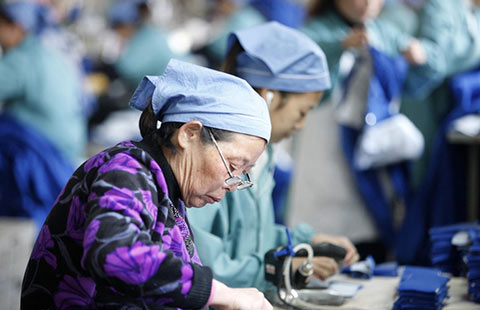Foresun buys Latin beef-processing units
By Emma Gonzalez (China Daily) Updated: 2016-04-09 07:47Chinese meat processor Foresun Group has agreed to buy three beef slaughterhouses and a livestock confinement unit in Argentina from Brazilian meatpacker Margrif Global Foods SA for $75 million.
Under the agreement, Black Bamboo Enterprises, a subsidiary of Foresun, will take over three meatpacking facilities in the towns of Hughes, Vivorata and Unquillo, all located in the central part of Argentina, Margrif announced in a regulatory filing.
The confinement unit, based in Monte Ralo, is also in the same area.
Foresun, headquartered in Qiqihar, Heilongjiang province, has already made an initial payment of $34 million to gain control over the facility in Hughes, with the remainder to be paid within 12 months of delivery of the other units.
In the past few years, the appetite for red meat in China has continued to accelerate, thanks to changing eating habits, higher disposable incomes and growing urbanization.
China is expected to consume 7.4 million metric tons of red meat in 2016, according to a report by the USDA Foreign Agricultural Service.
Meanwhile, Chinese beef imports are forecast to reach 600,000 tons in 2016, a 20 percent year-on-year growth.
The high demand for red meat is prompting Chinese companies to look abroad to secure production facilities.
"The Chinese government encourages outbound investment in overseas plants of agricultural products," noted Neil Wang, global partner and China president of the consulting firm Frost and Sullivan.
"This can provide China with more control over the supply chains for food imports."
Only a few countries can export beef to China due to various health restrictions. They include Australia, New Zealand, Argentina, Uruguay and Brazil.
Although Australia continues to dominate the Chinese beef market, countries in Latin America are quickly expanding their share, thanks to cheaper cuts in greater quantities.
"China is especially looking at Latin America to lower its dependence on a limited number of suppliers," said Aurelia Britsch, a senior commodity analyst at Business Monitor International. "These large suppliers of cheap meat cuts will probably make large inroads into China's beef market and pose a clear threat to Australian exports over the medium term."
Last year, China became the top importer of Argentine beef products, with 36 percent of the total exports being sold to the Asian country, according to Aacrea, Argentina's association of meat producers.
Zhu Wenqian in Beijing and Zhou Huiying in Harbin contributed to this story.
- Oculus to tap China market
- Online sites won't pass new taxes on to consumers, for now
- Govt to enhance rural e-commerce
- Fears of end to stock-selling ban unfounded
- Forex reserve rise eases economy fears
- China's most expensive vacation can be booked April 25
- RMB internationalization a positive thing: former Fed heads
- Shanghai, Shenzhen see fall in housing market after new curbs

















